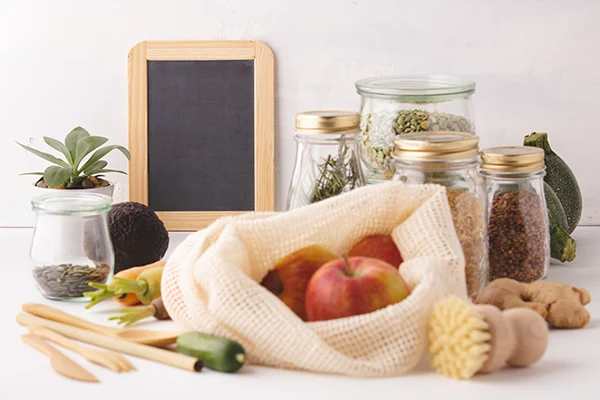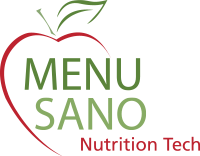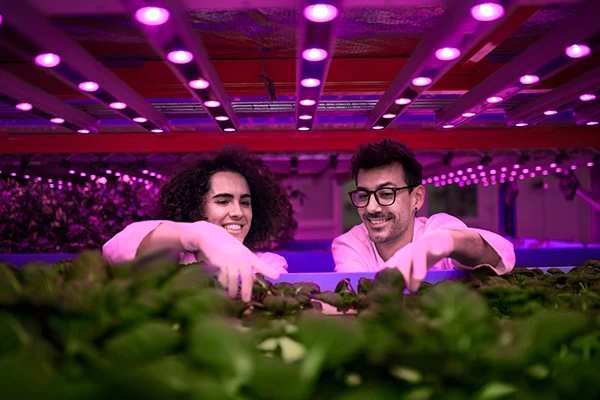The holiday season, synonymous with joyous gatherings and indulgent feasts, also presents an opportunity for restaurants to align with eco-conscious practices. In a time when sustainability is increasingly valued, integrating green initiatives into holiday menus resonates with customers’ values and contributes to environmental preservation. Let’s explore a comprehensive guide on how restaurants can infuse sustainability into their holiday offerings.
1. Reducing Environmental Impact:
- Conserving Water: Water is an essential resource in every aspect of restaurant operations. Implementing low-flow spray valves and using water-saving toilets and urinals can significantly minimize water usage. Additionally, reconsidering the practice of automatically serving water to customers and instead offering it upon request helps conserve this precious resource.
- Energy-Efficient Appliances: Upgrading to Energy Star Qualified appliances and embracing energy-saving measures such as using LED lighting and motion sensors can substantially reduce energy consumption, making a notable difference in a restaurant’s carbon footprint.
2. Sustainable Sourcing and Practices:
- Rethinking Food Shipments: Opting for local produce supports nearby farmers and reduces the carbon footprint associated with transportation. Buying from local sources and arranging bulk shipments minimizes the frequency of deliveries, effectively cutting down on emissions.
- Eco-Friendly Disposables: For Meal Kit delivery companies working on holiday menus, transitioning from traditional plastic utensils and dinnerware to compostable options made from renewable materials like sugarcane or bamboo significantly reduces plastic waste. Additionally, municipalities banning plastic straws make this an opportune moment to embrace alternatives like PLA plastic or paper straws.
3. Minimizing Waste:
- Portion Control and Inventory Management: By adopting practices like the First In, First Out (FIFO) method, restaurants can minimize holiday food waste. Carefully managing inventory and creatively using food scraps can contribute to reducing overall waste.
- Front-of-House Optimization: From energy-efficient lighting to choosing furniture made from sustainable materials, optimizing the dining space can significantly impact energy consumption and waste generation.

4. Sustainable Choices for Holiday Menus:
- Mindful Meat Consumption: For holiday food packaging, encouraging patrons to consider responsible meat sourcing by highlighting organic and regenerative agriculture practices can promote a more sustainable holiday meal. Offering plant-based alternatives alongside meat dishes can diversify menus and reduce environmental impact.
- Elevating Tradition for Sustainability: Drawing from traditional food preservation techniques and leveraging seasonal produce for holiday meals fosters culinary creativity and aligns with sustainable practices. Utilizing excess food for creative recipes and reducing overall waste can amplify the eco-friendly nature of holiday feasts.
Read Blog: Your Guide to Creating Holiday Menus
5. Low-Cost Sustainability Tactics:
- Implementing Cost-Effective Strategies: From reducing holiday meal portion sizes to composting uneaten food and using frozen products to minimize food waste, several low-cost strategies can bring tangible sustainability benefits to companies doing holiday catering without a significant financial burden.
- Zero-Waste Restaurant Initiatives: Highlighting successful zero-waste restaurants and their innovative approaches, emphasizing the possibility of incremental change and showcasing real-world examples of sustainability in action.
Read Blog: 5 Tips for Holiday Food Inspection Survival
Conclusion:
By embracing eco-friendly practices during the holiday season, restaurants, catering, food packaging and other food industries can align with evolving customer values and contribute to preserving the environment. Implementing sustainable measures, no matter how small, can have a substantial collective impact. These practices reflect a commitment to the community and the planet and resonate positively with patrons seeking responsible and ethical food experiences.
At Menusano, we believe in empowering food service businesses to make informed, sustainable choices effortlessly. Our comprehensive platform simplifies nutritional analysis, facilitates menu labeling compliance, and supports your journey toward offering healthier, eco-conscious menu options. Explore how Menusano can revolutionize your approach to menu creation and contribute to your sustainability goals with a free demo.
Join us in making a difference this holiday season. Together, let’s pave the way for a greener, more sustainable future in the food service industry.



















